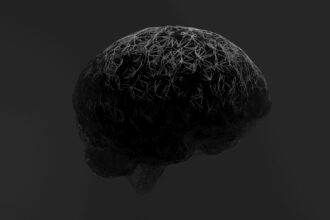When you think about your beliefs, you might not realize that they are often shaped by your past experiences, cultural background, and the information you have encountered throughout your life. These beliefs, known as “priors,” serve as the foundation for how you interpret new information and make decisions. They act as mental shortcuts, helping you navigate the complexities of the world.
For instance, if you have always been told that a particular food is unhealthy, you may approach it with skepticism, regardless of new evidence suggesting otherwise. Your priors can influence everything from your opinions on social issues to your understanding of scientific concepts. Understanding your priors is crucial because they can limit your ability to adapt and grow.
If you cling too tightly to outdated beliefs, you may miss out on opportunities for personal development or fail to recognize emerging truths. By acknowledging the existence of your priors, you can begin to question their validity and consider how they might be affecting your worldview. This self-awareness is the first step toward fostering a more open-minded approach to learning and understanding the world around you.
Key Takeaways
- Prior beliefs are the foundation of our understanding and decision-making.
- It is important to update our prior beliefs in order to make informed decisions and adapt to new information.
- Recognize the need to update your prior beliefs when faced with conflicting or new information.
- New information can be found through various sources such as research, experts, and personal experiences.
- Assess the credibility of sources by considering their expertise, bias, and reliability.
The Importance of Updating Priors: Why Revise Your Beliefs?
Updating your priors is essential for several reasons. First and foremost, the world is constantly changing, and new information emerges every day. If you refuse to revise your beliefs in light of new evidence, you risk becoming stagnant in your thinking.
This stagnation can lead to poor decision-making and a lack of adaptability in an ever-evolving environment. By actively seeking to update your priors, you position yourself to make more informed choices that reflect the current state of knowledge. Moreover, revising your beliefs can enhance your critical thinking skills.
When you challenge your existing priors and consider alternative viewpoints, you engage in a process of reflection that sharpens your analytical abilities. This practice not only helps you become a more discerning consumer of information but also fosters a growth mindset. Embracing the idea that your beliefs can evolve encourages a lifelong commitment to learning and self-improvement.
Recognizing the Need for Revision: When to Update Your Priors
Recognizing when it’s time to update your priors can be challenging, but there are key indicators that can guide you. One significant sign is when you encounter new evidence that contradicts your existing beliefs. For example, if you’ve always believed that a certain political policy is effective but come across research indicating its negative consequences, this discrepancy should prompt you to reevaluate your stance.
Additionally, if you find yourself consistently struggling to defend a belief in the face of opposing arguments, it may be time to reconsider its validity. Another indicator is when you notice a shift in societal norms or values. As cultural contexts evolve, so too should your beliefs.
If you find that your views are increasingly out of step with those around you, it may be an opportunity for introspection and growth. Being open to change is vital; it allows you to adapt to new realities and engage more meaningfully with others who may hold different perspectives.
Sources of New Information: Where to Find Data to Update Your Priors
| Source | Reliability | Accessibility |
|---|---|---|
| Government websites | High | High |
| Academic journals | High | Medium |
| Industry reports | Medium | Medium |
| News articles | Medium | High |
| Social media | Low | High |
In today’s information-rich environment, finding sources of new data is more accessible than ever. You can explore a variety of platforms, including academic journals, reputable news outlets, podcasts, and online courses. Engaging with diverse media can expose you to different viewpoints and help you gather evidence that challenges or supports your existing beliefs.
For instance, if you’re interested in climate change, reading scientific articles or listening to expert interviews can provide valuable insights that may prompt you to revise your priors. Social media can also serve as a double-edged sword in this context. While it can be a source of misinformation, it can also connect you with thought leaders and communities that share valuable perspectives.
Following experts in fields relevant to your interests can help you stay informed about the latest developments and research findings. However, it’s essential to approach social media critically and verify the credibility of the information before accepting it as truth.
Evaluating New Information: How to Assess the Credibility of Sources
As you seek out new information, evaluating the credibility of your sources becomes paramount. Not all data is created equal; some sources may have biases or agendas that color their presentation of facts. To assess credibility, consider the author’s qualifications and expertise in the subject matter.
Are they recognized authorities in their field? Additionally, look for peer-reviewed studies or articles published in reputable journals, as these typically undergo rigorous scrutiny before publication. Another important factor is the presence of citations and references within the material.
Credible sources often provide evidence to support their claims, allowing you to trace back to original research or data. Furthermore, cross-referencing multiple sources can help confirm the accuracy of the information you’re encountering. By taking these steps, you can ensure that the new data you’re integrating into your belief system is reliable and well-founded.
Incorporating New Data: Methods for Integrating New Information into Your Beliefs
Once you’ve gathered credible information that challenges or supports your priors, the next step is integrating this new data into your belief system. One effective method is through reflective journaling. By writing down your thoughts about the new information and how it relates to your existing beliefs, you create a space for contemplation and synthesis.
This practice allows you to articulate any conflicts between old and new beliefs and helps clarify how they might coexist or necessitate change. Another approach is engaging in discussions with others who hold different viewpoints. Conversations can provide valuable insights and help solidify or reshape your understanding of complex issues.
By articulating your thoughts and hearing counterarguments, you create an opportunity for deeper learning and growth. This collaborative process not only enriches your perspective but also fosters empathy and understanding toward those who may disagree with you.
Challenging Confirmation Bias: Overcoming the Tendency to Seek Information that Confirms Existing Beliefs
Confirmation bias is a common cognitive trap that leads individuals to favor information that aligns with their existing beliefs while dismissing contradictory evidence. To overcome this tendency, it’s essential to actively seek out diverse perspectives and challenge yourself to engage with opposing viewpoints. This might involve reading articles or books that present arguments contrary to your own or participating in debates where differing opinions are expressed.
Additionally, cultivating curiosity can help combat confirmation bias. Approach new information with an open mind and a willingness to learn rather than defend your current beliefs. By adopting a mindset focused on exploration rather than validation, you’ll be more likely to encounter ideas that challenge your priors and encourage growth.
Seeking Diverse Perspectives: How to Expand Your Knowledge Base and Challenge Assumptions
Expanding your knowledge base requires intentional effort to seek out diverse perspectives. This could involve joining discussion groups or forums where individuals from various backgrounds share their experiences and insights. Engaging with people who have different life experiences can provide valuable context that enriches your understanding of complex issues.
Moreover, consider exploring literature from authors with diverse backgrounds or viewpoints.
By immersing yourself in diverse narratives, you’ll cultivate empathy and gain a more nuanced understanding of the world around you.
Revising Priors in the Face of Uncertainty: Strategies for Updating Beliefs in Ambiguous Situations
In situations where uncertainty prevails, revising your priors can be particularly challenging yet essential. One effective strategy is adopting a probabilistic mindset—recognizing that beliefs are not absolutes but rather degrees of certainty based on available evidence. This approach allows you to remain flexible in your thinking while acknowledging that new information may shift your understanding over time.
Additionally, practicing mindfulness can help you navigate ambiguity more effectively. By staying present and aware of your thoughts without judgment, you create space for reflection and consideration of alternative viewpoints. This practice encourages patience as you grapple with uncertainty and fosters resilience as you adapt your beliefs in response to evolving circumstances.
Communicating Updated Priors: Sharing Revised Beliefs with Others
Once you’ve revised your priors based on new information, communicating these changes effectively is crucial for fostering understanding among those around you. When sharing updated beliefs, approach conversations with humility and openness rather than defensiveness. Acknowledge that everyone has their own journey of learning and growth; this creates an environment conducive to constructive dialogue.
Sharing personal anecdotes or citing credible sources can help others understand the rationale behind your changes while encouraging them to reflect on their own beliefs as well.
Embracing Growth and Learning: The Benefits of Regularly Updating Priors
Embracing the practice of regularly updating your priors offers numerous benefits beyond personal growth; it enhances critical thinking skills and fosters adaptability in an ever-changing world. By remaining open to new information and willing to revise beliefs accordingly, you cultivate a mindset geared toward lifelong learning—a trait that serves both personal and professional development. Furthermore, this commitment to growth encourages deeper connections with others as you engage in meaningful conversations about complex issues.
By sharing updated beliefs rooted in evidence and reflection, you contribute positively to discussions while inspiring those around you to embark on their own journeys of exploration and understanding. In conclusion, understanding and updating your priors is an essential aspect of personal growth and critical thinking. By recognizing when it’s time for revision, seeking diverse perspectives, evaluating new information critically, and communicating changes effectively, you position yourself for continuous learning in an ever-evolving world.
Embrace this journey with curiosity and openness; it will enrich not only your understanding but also enhance your interactions with others as you navigate life’s complexities together.
When considering how to update your priors, it’s essential to understand the foundational concepts of Bayesian reasoning and how new evidence can influence your existing beliefs. A related article that delves into the intricacies of psychological insights and decision-making processes can be found on Unplugged Psych. This resource provides valuable perspectives on how our cognitive frameworks can be adjusted in light of new information. For more in-depth exploration, you can visit their




